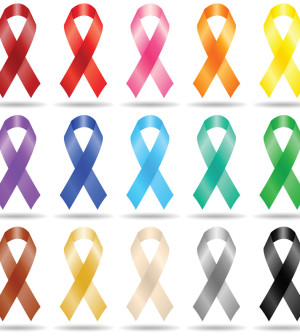- Recognizing the Signs of Hypothyroidism
- 10 Strategies to Overcome Insomnia
- Could Artificial Sweeteners Be Aging the Brain Faster?
- Techniques for Soothing Your Nervous System
- Does the Water in Your House Smell Funny? Here’s Why
- Can a Daily Dose of Apple Cider Vinegar Actually Aid Weight Loss?
- 6 Health Beverages That Can Actually Spike Your Blood Sugar
- Treatment Options for Social Anxiety Disorder
- Understanding the Connection Between Anxiety and Depression
- How Daily Prunes Can Influence Cholesterol and Inflammation
Running Might Beat Walking for Breast Cancer Survivors


Exercise has long been credited with both reducing the risk of breast cancer and surviving the disease.
Now a new study suggests, but doesn’t prove, that breast cancer survivors who run have an even greater survival edge than those who walk.
“Exercise per se lowers the risk of breast cancer death, but, more importantly, we found a difference between walkers and runners,” said study author Paul Williams, a staff scientist at the Lawrence Berkeley National Laboratory in Berkeley, Calif.
“We see these huge reductions [in breast cancer deaths] in women who run — much greater than those who walk,” Williams said. “[Even so], we don’t see this as negating the benefit of walking.”
But running appears to confer more protection than walking in reducing the risk of dying from breast cancer, he said.
The study was published online recently in the International Journal of Cancer.
Williams compared two groups from his long-running National Runners’ and Walker’s Health Study. He followed nearly 300 runners and more than 700 walkers, all of whom had been diagnosed with breast cancer. During the nine-year study, 33 of the walkers and 13 of the runners died from breast cancer.
Williams took into account other factors that might influence survival, such as age, family history, race and menopausal status.
When he looked at all the women as a single group, he found about a 25 percent reduction in death from breast cancer during the follow-up period for every mile of brisk walking or two-thirds of a mile of running.
When he looked at just the runners, however, he found that the same amount of running reduced the risk of death by more than 40 percent. The runners who averaged more than two and a quarter miles per day had a 95 percent lower risk of death from breast cancer during the follow-up period.
The walkers’ risk of breast cancer death for every mile walked each day declined just 5 percent, which wasn’t statistically significant, Williams said.
Williams said he can’t explain the link between more vigorous exercise and a lower death risk. And he found only an association between the two, not a cause-and-effect link.
“Running may be more effective in interrupting the hormone cycle and lowering estrogen in a woman’s system,” he said, and the lower estrogen levels mean less fuel for breast cancer to grow.
But some breast cancer experts have reservations about the study findings, including Leslie Bernstein, director of cancer etiology at the City of Hope Comprehensive Cancer Institute, in Duarte, Calif.
Although the message to exercise is a good one, the data used for the study lacks some vital information, Bernstein said.
Williams acknowledged the lack of certain data, such as the self-reporting of the participants, how advanced the cancer was at diagnosis, what type of breast cancer it was and what treatment was used.
Other factors might have influenced the findings, too, Bernstein said. For instance, the runners might have had less advanced disease than the walkers. She said she is not aware of any other studies showing such a dramatic difference in survival between runners and walkers, and she has published extensive research on exercise and breast cancer.
Her advice to breast cancer survivors? “I would say it’s better to run than to walk because you spend more energy,” Bernstein said. “But you can only do what’s good for you. Older women will probably not want to run unless they have been running all along.”
The plan to run after breast cancer treatment might be better for younger women, she said. Experts advise checking with a doctor before starting a workout regimen.
Those who decide to walk can think about doing so more briskly, with a doctor’s approval. “If you walk, push yourself so you’re out of breath,” Bernstein said.
More information
To learn more about breast cancer, visit the American Cancer Society.
Source: HealthDay
Copyright © 2026 HealthDay. All rights reserved.










